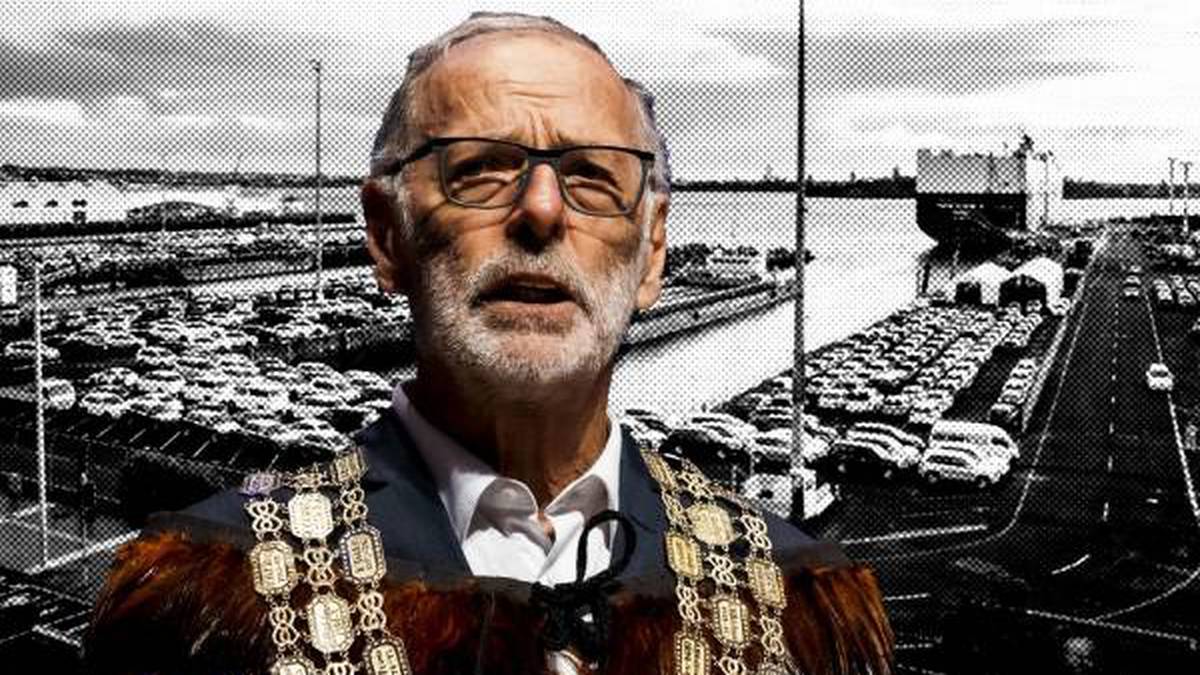Auckland Mayor Wayne Brown has Auckland and Northland’s ports in sight. Photo / Jay Farnworth, Michael Craig
OPINION
Six weeks ago I wrote this in this column: “Niwa is predicting that the cyclone season will come early this year and, with holidaymakers being unleashed on our roads for the first time in three years, we have the makings of a perfect storm.”
Well, we’ve had the storm and no storm is perfect. Holidaymakers have come and gone and we’re left to clean up after Cyclone Hale – with another cyclone now bearing down on us.
Whangārei Mayor Vince Cocurullo reminded us earlier this week of the need to be patient, as council contractors grapple with the unseasonal and perfect growing conditions for grass and weeds, as well as the unprecedented road damage caused by the water inundation.
Advertisement
Enhanced road maintenance spend has now got to be, clearly, in the crosshairs of political parties and election candidates as the national roading system packs it in, alongside the increasingly problematic funding model for our fragile road network.
We have a social contract between current road users, who pay excise and road user charges (RUC), and those charged with providing us with a well-maintained network to ride on.
But potholed roads are one thing, we drive on them daily and expect them to be fixed with current cash. The future of our transport network is quite another – and that requires long-term strategic thinking over decades, with rational cross-party agreement about what is best for the country.
These are projects which should emerge from impartial, professional, and logical analysis. They are created over many years and are funded by the taxpayer, as the New Zealand Upgrade Programme, rather than the road user through excise and RUC.
Advertisement
In a Northland context, two projects are in focus. The almost-completed Pūhoi to Warkworth route, the so-called “holiday highway”, was reported this week as likely to open around the middle of this year.
/cloudfront-ap-southeast-2.images.arcpublishing.com/nzme/GYRQQY45TFBNTPRIZZXJS4U2H4.JPG)
After years of planning, the first sod on this was turned in December 2016 and it has been developed under a public-private partnership. The final cost is likely to exceed $1.1 billion and was, at one stage, being talked of as a toll road paid for directly by road users over a 30-year timeframe.
“No way,” Northland road users cried. “This is in the national interest and needs to be permanently funded by the taxpayer and all road users – not just locals.” So it will be, from sometime this year.
The other national interest project in Northland is the Oakleigh to Marsden Point rail spur. This is currently identified as a $600 million project under the New Zealand Upgrade Programme and is far more than just taking a portion of the Northland log transport off the roads.
This is a national-interest, once-in-a-political-term opportunity, to rationalise the upper North Island transport infrastructure network, with forever benefits to Auckland and Northland’s freight and logistics supply chains.
The most recent of 24 reports to facilitate this was developed over three years ago under working group chairman Wayne Brown – the new Auckland mayor. Back then this report recommended the managed closure of Ports of Auckland’s freight activities, and the development of Northport into a major import and export handler.
Under the plan, Auckland port would be relieved of the receipt and storage of 67 per cent of the country’s vehicle imports, as well as of a significant number of containers, and the wharves would be returned to the people of Auckland for their living and recreation.
Northport has the land and infrastructure to receive all that, and it just needs the rail spur to link up the rest of the country.
Now Brown is in a position to mobilise his recommendations, though there are huge vested interests who really need to be told that car imports are no longer coming to Auckland’s wharves. But these things take years to implement.
I do hope that Northland politicians and businesspeople do not drop the ball on this.
Advertisement
Our new and relatively-inexperienced local government politicians and officials need to lift their eyes to the next generation and cheer the Auckland mayor on- in Northland’s and New Zealand’s national interest.




